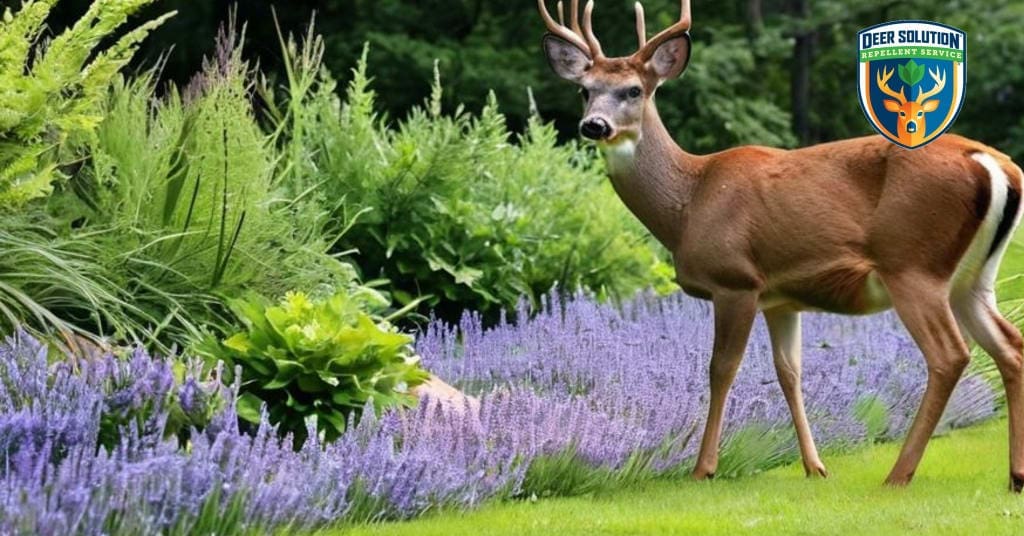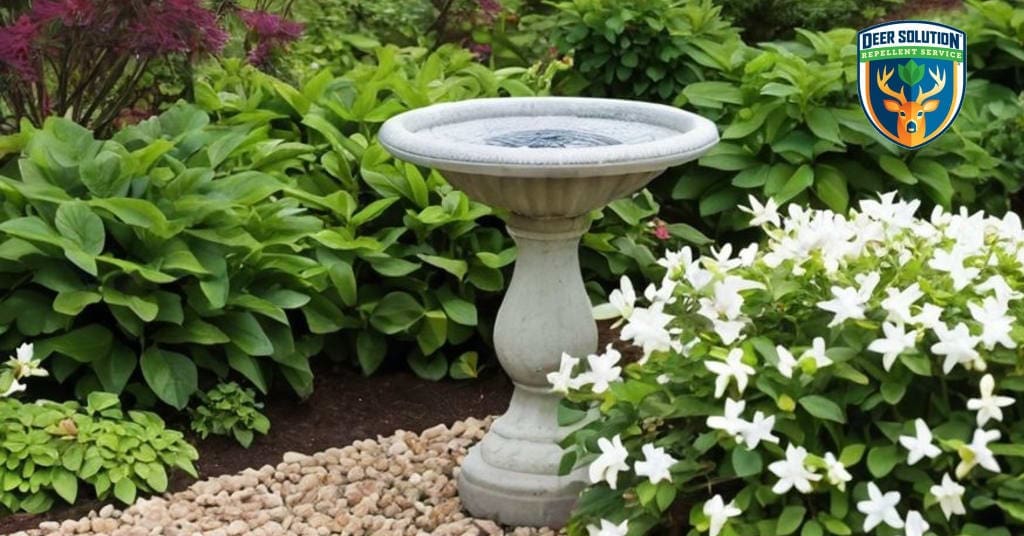Irises, known for their elegance and bold colors, often become the focal point of a garden—but do these eye-catching blooms also capture the attention of deer? Irises (Iris species) are a favorite among gardeners for their beauty and versatility, but their appeal can sometimes attract deer. Understanding the relationship between irises and deer is key to protecting these stunning plants.
Understanding Deer Behavior
Deer are known for their adaptable feeding habits, which can vary based on the availability of food sources. During times when food is scarce, deer may nibble on a wider variety of plants, including irises. However, irises are not typically a primary food source for deer. Their consumption largely depends on the local deer population, alternative food availability, and seasonal changes. For instance, during harsh winters or dry summers, when natural forage is limited, deer are more likely to venture into gardens and sample a broader range of plants.
Deer are creatures of habit and tend to follow established trails. If your garden lies along one of these paths, it is more likely to experience deer visits. Additionally, young deer, or fawns, are more curious and may sample a variety of plants, including irises, as they learn what is palatable and what is not. Understanding these behaviors can help gardeners develop more effective strategies to protect their plants.
Why Irises Might Attract Deer
Irises, particularly the tender new shoots and buds, can be appealing to deer. The plants’ moisture content and the nutritional value of these parts make them a potential target. While irises are not a preferred choice, their accessibility in a garden setting can make them vulnerable, especially during early spring when other food sources may be limited. The bright colors and sweet scent of irises can also attract deer, making them more likely to investigate and potentially nibble on these plants.
Enhancing Your Garden with Deer-Resistant Irises
To protect your irises, it’s essential to select varieties that are naturally more resistant to deer browsing. Consider incorporating species such as:
- Siberian Irises (Iris sibirica): These irises are known for their tough, grass-like foliage, which is less attractive to deer. Siberian irises are also drought-tolerant and provide striking, colorful blooms in mid-spring.
- Bearded Irises (Iris germanica): The fuzzy “”beard”” on these irises, combined with their slightly bitter taste, makes them less palatable to deer. Their wide range of colors also adds vibrant diversity to your garden.
Creating a Deer-Resistant Garden
Designing a garden that minimizes deer damage involves thoughtful planning and plant selection. Here are a few tips:
1. Strategic Planting
Planting deer-resistant species around irises can create a protective barrier. Consider using companion plants like **alliums**, whose strong scent helps mask the irises. By placing deer-resistant species along the perimeter of your garden, you can make it less inviting to deer.
2. Layered Garden Design
Creating a layered planting scheme with taller, tougher plants on the edges and more vulnerable plants like irises in the center can protect the irises from direct browsing. This design also adds visual depth and structure to your garden.
3. Mulching and Maintenance
Keeping your garden well-maintained can reduce the chances of deer browsing. Regularly trim overgrown areas and clear fallen leaves or fruit, as these can attract deer. Additionally, organic mulch around irises can help with moisture retention while deterring deer through the release of earthy, unappealing scents.
Deer Solution’s Eco-Friendly Approach
While addressing deer-related landscape challenges can seem daunting, Deer Solution offers a specialized approach grounded in our eco-friendly ethos and decades of expertise. Our certified deer damage experts provide a monthly application of an all-natural repellent, tailored to protect your irises and other cherished plants. This service is designed to help mitigate deer damage, ensuring your garden remains vibrant and healthy.
By choosing Deer Solution, you can enjoy a thriving garden, safe in the knowledge that our methods are environmentally friendly and effective. Our team of experts not only applies repellents but also offers advice on garden design, plant selection, and other strategies to create a deer-resistant landscape. This comprehensive approach ensures that your garden remains a sanctuary for both you and your plants, free from the threat of deer damage.
Creating a Deer-Resistant Oasis with Irises
Though deer may occasionally nibble on irises, understanding their behavior and implementing eco-friendly management practices can significantly reduce the risk. By combining plant selection, strategic garden layout, and professional services like those from Deer Solution, gardeners can protect their irises and enjoy a beautiful, thriving garden. These strategies not only safeguard your plants but also promote a harmonious coexistence with local wildlife, ensuring that your garden remains a vibrant and welcoming space for all.












